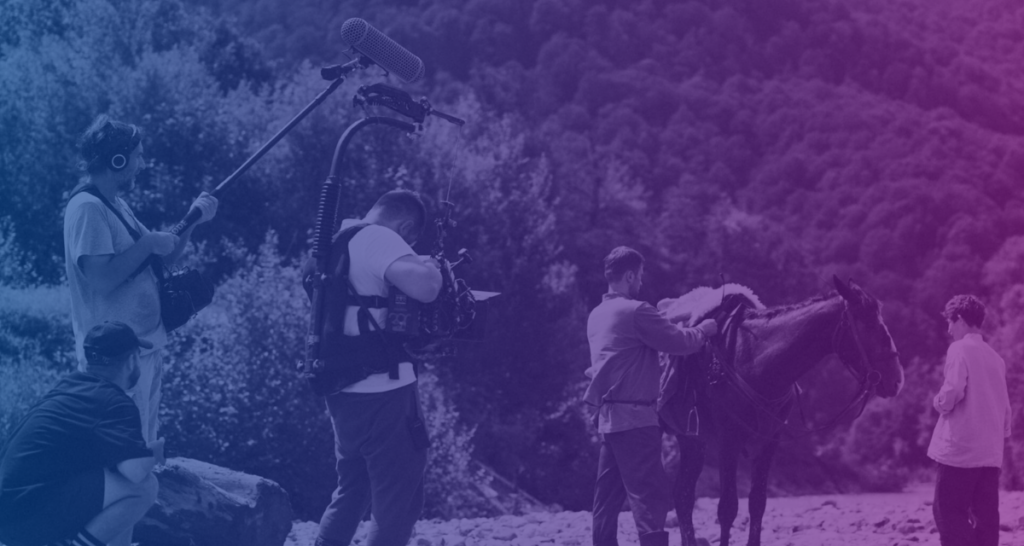
Entertainment lawyers play a vital role in the film industry, navigating the complex terrain of legal frameworks governing creative endeavors. In this article, we delve into the realm of entertainment law, exploring its intricacies and the indispensable role of entertainment lawyers in safeguarding the rights and interests of filmmakers.
There is a great deal of nuance in film copyright laws and the multifaceted landscape of entertainment law, and it takes a legal expert to ensure compliance, protect intellectual property, and facilitate the realization of artistic visions in the ever-evolving world of entertainment.
What is entertainment law and its role in independent film?
Entertainment law for indie filmmakers encompasses a comprehensive array of legal areas crucial to the production and distribution of films.
It includes copyright law, safeguarding the original works of filmmakers like screenplays, films themselves, and original music scores. Contract law governs agreements between filmmakers and various stakeholders, from cast and crew to producers and distributors, covering everything from employment contracts to distribution agreements. Intellectual property law extends beyond copyright, encompassing trademarks for film titles or franchises and, less commonly, patents for new filmmaking technologies. Labor law ensures compliance with regulations regarding the employment of cast and crew, including union agreements with organizations like SAG-AFTRA. Defamation and privacy rights are significant for documentary filmmakers or those depicting real events or people, aiming to avoid legal repercussions related to portrayal.
Throughout the lifecycle of a film, from development to distribution, legal considerations are paramount. For indie filmmakers, legal guidance is especially vital due to challenges like limited budgets, the complexity of rights acquisition, distribution agreements, and obtaining necessary clearances and releases.
Without such guidance, indie filmmakers risk costly legal disputes that could derail their projects financially or prevent them from reaching their intended audience, exemplified by scenarios like improper clearance of copyrighted material leading to infringement lawsuits or failed distribution deals due to misunderstanding terms.
What are some key legal considerations?
When considering the legal aspects of filmmaking, intellectual property protection stands as a paramount concern. This entails securing copyrights, trademarks, and licenses to safeguard original works and prevent unauthorized use of creative assets.
Copyright registration with the relevant national office is essential, covering elements such as the screenplay, score, and any other unique creations associated with the film, providing tangible evidence of ownership crucial for enforcing copyright claims against infringement.
If the film’s title or distinct features are intended for extensive marketing and merchandising, obtaining trademark protection is advisable to prevent confusion or brand dilution by others.
Navigating licensing agreements for pre-existing music, footage, or artwork involves negotiating terms that outline usage scope, duration, and compensation with the respective copyright holders, ensuring legal compliance and fair use of copyrighted materials.
What is the role of an entertainment lawyer in contract negotiations and drafting?
In contract negotiations and drafting, an entertainment lawyer plays a pivotal role in ensuring the protection of filmmakers’ interests and legal compliance. They oversee the drafting and negotiation of various contracts essential to filmmaking, covering areas such as script rights, music licenses, talent agreements, and production and distribution arrangements.
For instance, they meticulously outline the scope of rights and financial arrangements in script rights contracts, negotiate the terms of music licenses regarding usage scope and compensation, and ensure clarity in talent agreements regarding work scope, compensation, and image rights.
Entertainment lawyers also facilitate the protection of confidentiality through nondisclosure agreements and conduct clearance searches to prevent rights infringements, encompassing evaluation of copyrighted material and trademark clearance.
They provide guidance on financing and investment strategies, structure investment opportunities, and draft agreements compliant with securities regulations. Moreover, they assist in the incorporation of film projects as LLCs, offering liability protection and facilitating flexible ownership and profit-sharing arrangements.
Throughout the process, entertainment lawyers play a crucial role in navigating legal complexities, mitigating risks, and ensuring the smooth execution of filmmaking endeavors.

What is legal and regulatory compliance for indie filmmakers?
For indie filmmakers, legal and regulatory compliance entails navigating a multifaceted landscape encompassing industry standards, labor laws, union requirements, international considerations, distribution strategies, and contractual negotiations.
Compliance with regulatory standards involves understanding rating systems and adhering to labor laws regarding employment practices, minimum wage, and workplace safety. Compliance with union and guild requirements, such as those set by SAG-AFTRA and WGA, is essential, including agreements on wages, working conditions, and residuals.
Addressing international legal considerations, particularly in co-productions, involves understanding co-production treaties, intellectual property rights, cultural sensitivities, and tax incentives across jurisdictions.
In distribution and exhibition, legal guidance is crucial for managing festival rights, securing clearances, and negotiating distribution deals with platforms and distributors. This includes strategizing release windows, territorial rights, minimum guarantees, marketing commitments, and financial structures to maximize exposure and revenue while safeguarding filmmakers’ rights and interests.
How is the legal landscape evolving?
The legal landscape is rapidly evolving, driven by technological advancements, emerging content forms, and innovative financing models. Attorneys are at the forefront, navigating the complexities of streaming platforms and digital distribution while embracing new challenges and opportunities presented by virtual reality (VR), AI-generated content, blockchain financing, and online crowdfunding.
They ensure that intellectual property rights are protected in these new domains and that creators and investors comply with securities laws.
As the legal terrain shifts, independent filmmakers are encouraged to leverage accessible legal resources, including legal clinics, filmmaker alliances, and online platforms offering affordable legal guidance and templates. By building networks for legal support and utilizing online legal services tailored to the entertainment industry, filmmakers can adapt to the evolving legal landscape and navigate it effectively.
Seek legal advice to fulfill a film’s vision
Entertainment lawyers are an indispensable guardian of filmmakers’ interests, playing a pivotal role in navigating the intricate legal landscape of the entertainment industry. By drafting and negotiating a myriad of contracts, they ensure that filmmakers’ rights are protected across various domains, from film financing to distribution agreements.
Their expertise extends to securing copyrights, obtaining necessary clearances, and ensuring compliance with labor laws and other regulations. They provide invaluable guidance on financing arrangements, including emerging models like crowdfunding and investments.
Through their diligent efforts, entertainment lawyers not only safeguard filmmakers but also empower them to navigate the complexities of the industry with confidence, ensuring legal compliance and fostering creative success.
